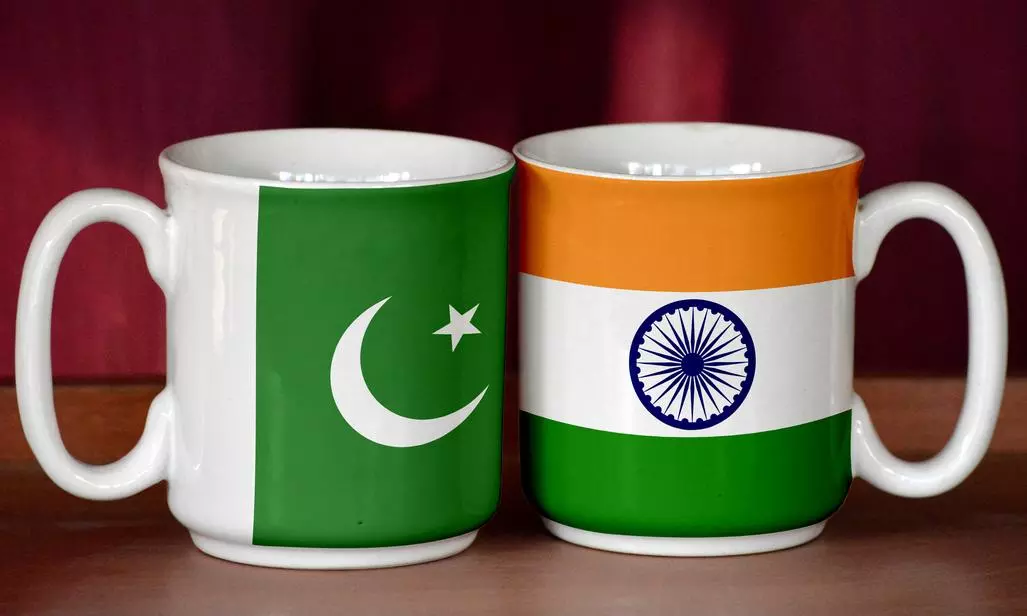
- Home
- India
- World
- Premium
- THE FEDERAL SPECIAL
- Analysis
- States
- Perspective
- Videos
- Sports
- Education
- Entertainment
- Elections
- Features
- Health
- Business
- Series
- In memoriam: Sheikh Mujibur Rahman
- Bishnoi's Men
- NEET TANGLE
- Economy Series
- Earth Day
- Kashmir’s Frozen Turbulence
- India@75
- The legend of Ramjanmabhoomi
- Liberalisation@30
- How to tame a dragon
- Celebrating biodiversity
- Farm Matters
- 50 days of solitude
- Bringing Migrants Home
- Budget 2020
- Jharkhand Votes
- The Federal Investigates
- The Federal Impact
- Vanishing Sand
- Gandhi @ 150
- Andhra Today
- Field report
- Operation Gulmarg
- Pandemic @1 Mn in India
- The Federal Year-End
- The Zero Year
- Science
- Brand studio
- Newsletter
- Elections 2024
- Events
- Home
- IndiaIndia
- World
- Analysis
- StatesStates
- PerspectivePerspective
- VideosVideos
- Sports
- Education
- Entertainment
- ElectionsElections
- Features
- Health
- BusinessBusiness
- Premium
- Loading...
Premium - Events

Is the slogan so potent it can shake the edifice of the mighty Indian state? Or, is there something out of place in the heavy-handed response of the state?
If one commits an unlawful act, criminal prosecution follows. But how about an action that is interpreted to be criminal as there is nothing in the statute books to make it explicitly unlawful?
Shouting out “Pakistan Zindabad” in India appears to fall in this category.
Three individuals, who allegedly gave this shout during the victory celebration of a Congress leader in the recent Rajya Sabha election in Karnataka, are now in a Bengaluru jail. Congress Chief Minister Siddaramaiah and his deputy DK Shivakumar, too, criticised the three for the alleged slogan.
What’s with a slogan?
Is the slogan in question so potent that it can land someone in jail? During times of war, laws kick in that would make the slogan criminally culpable. For example, if someone in Russia shouts the equivalent of “Ukraine Zindabad”, that individual is in trouble.
No doubt India and Pakistan have a tense relationship, verging on the hostile. But they are not formally at war though intelligence agencies on both sides accuse each other whenever there are terror attacks in either country.
There are civilians visiting each other’s country, trade continues between the two, there are functional consulates of the two countries in each other’s capital. Even sporting events happen between the two nations including the one during the Cricket World Cup in October last year.
Dispute resolution
Lest one forgets, India and Pakistan are known for their successful dispute resolution enabling the sharing of Indus river waters that flow through both countries. It is in fact touted as a classic example of successful river water dispute resolution anywhere in the world.
So why is “Pakistan Zindabad” a red rag? So crimson red that it can land an individual straight in jail for saying it in public?
A senior lawyer practising in the Supreme Court attempted to explain this saying “there is no law which criminalises raising any slogan”.
But he added a caveat: "If a slogan like ‘Pakistan Zindabad’ is intended to promote disharmony, its actionable in law for breach of peace.”
How do we know what the intent of the impugned individual is? “Apparently, without intent or motives there is no crime. However, intentions and motives are mental elements.”
“Hence, they are to be proved by circumstantial evidence. At a celebration of political victory, if one shouts ‘Pakistan Zindabad’ it is presumed to be intended for provoking and breaching the peace.”
Zindabad or Murdabad?
But, in reality, the issue can be taken to ludicrous levels. In December 2022, in Mandya, during a protest by the BJP against Pakistan minister Bilawal Bhutto's criticism of Prime Minister Narendra Modi, a BJP worker, D Ravi, started to shout “Pakistan Zindabad”. Fellow protesters of the saffron party were rattled. One of them hurriedly attempted to shut Ravi’s mouth with his hand.
Apparently, Ravi had limited knowledge of Hindi and intended shouting “Pakistan Murdabad”. But the damage was done, and 15 months later (a few days back), he was jailed for causing public mischief and for endangering national security.
So, what does one make of the slogan? Is it so potent that it can shake the edifice of the mighty Indian state? That an aspiring superpower can be laid low by a simple shout out?
Or, is one free to conclude that there is something out of place in the heavy-handed response of the state to a mere slogan?
But why the slogan?
On the flip side, why would anyone want to shout “Pakistan Zindabad”, of all the things in the world? If it is to irritate someone, is it worth it and then rot for months, if not years, in a dingy jail?
When one shouts “Pakistan Zindabad”, does it automatically put down the Indian nation? Can’t there be a standalone “Zindabad” for all countries of the world without it being seen as anti-Indian?
In fact, similar to the Mandya incident, during the anti-CAA protest in Bengaluru in 2020, a star speaker – 19-year-old female student Amulya Leona Noronha, who was in demand for her great speech delivery – did not know what hit her.
During a protest speech, she started to say “Pakistan Zindabad...” and was continuing to say something else when she was literally prevented by the organisers from saying anything more.
The firebrand AIMIM leader, Asaduddin Owaisi, was on stage and looked stunned too. Noronha was arrested, prosecuted and jailed for around 110 days before securing bail. She was not invited on stage again.
Noronha tried to explain to the organisers that she was going to cry out Zindabad for other countries too starting with Pakistan, and that she was abruptly prevented from speaking and could not continue.
Pre-1947 vintage
In the latest Vidhana Soudha incident too, after the victory of Congress candidate Syed Nasir Hussain in the Rajya Sabha election, there was confusion whether anyone had shouted Pakistan Zindabad. Eventually, three men – Mohammed Shafi, Ilthaz and Munawar – were arrested reportedly based on witness accounts and provisional forensic findings.
A look at India’s pre-Independence history gives a clue into why “Pakistan Zindabad” is taken so seriously.
In the months and years preceding Partition, when the Muslim League was championing the cause of separation from Hindu-majority India, those who supported the idea would shout out the slogan in public functions and when their leader Muhammad Ali Jinnah would speak in rallies.
The slogans gave a fillip to the idea of Partition and encouraged Muslim League leaders to intensify their efforts. Countering this were the shouts of “Hindustan Zindabad” from those who were against Partition.
Eventually, Partition happened. It has been 77 years, no less, since the two nations went their separate ways, but the slogan “Pakistan Zindabad” has remained as a relic from those tumultuous days. In today’s India, there is no context to the slogan. Even Pakistanis would be bemused at this archaic slogan occasionally doing the rounds in India.
The absurdity of those yelling “Pakistan Zindabad” is only matched by the disproportionate response of the Indian state.
Kashmir unrest
Probably the only exception is in Kashmir, which is at the heart of a bloody dispute between India and Pakistan. There, the slogan Pakistan Zindabad can carry some potency which then can lend itself to prosecution.
Other than in Kashmir, anywhere else in India, to think that an empty outdated slogan can seriously land someone in jail stretches credulity. Instead of taking such an extreme step like imprisonment, wouldn’t it be better for the Indian state to ask sloganeering individuals the rationale behind their actions and do some psychological counselling?
Or, is it that the slogan “Pakistan Zindabad” goes against the wishes of those who would prefer to see India’s neighbour suffer than do well in life? If so, then the wish might be worth a relook. For, any misery faced by Pakistan is bound to have repercussions in the neighbourhood including in India.
For example, in the late 1980’s, when Pakistan was heavily Islamised under then President General Zia Ul Haq, the repercussions were felt in Kashmir. The upsurge of violence in Kashmir in 1989 through to 2001 was the direct outcome of the Islamist militarisation that occurred when Pakistan was used as the staging ground to resist the Soviet invasion of Afghanistan. Kashmir has never really recovered fully from that bout of violence. So, it would be in India’s interest to wish Pakistan well as that in turn will hopefully bring peace to Kashmir.
In the last 77 years since Independence and Partition, besides economy and politics, militarily India has comprehensively defeated Pakistan in 1947-48, 1965, 1971 and 1999, so why still worry over a mere slogan?

